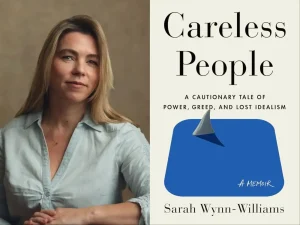Does the Canadian Jewish conversation on Israel need broadening, and what would it take to see us broaden our public debate platform to include those voices most critical of Israel?
Recently, American commentator Peter Beinart has urged the Jewish establishment to take seriously the perspective of those who oppose Zionism on intellectual and philosophical grounds. Simone Zimmerman has called on these same Jewish leaders to listen to “millennials’ deep outrage at the grave injustices committed by the Jewish state.”
READ: AN OPEN TENT REQUIRES AN OPEN MIND
And then there was the founding of Open Hillel (on whose academic council I sit), which calls on Hillel International to relax its standards of partnership to include a broader discussion of human rights and international law in the context of Israel and Palestine – namely, to include debate around boycott, divestment and sanctions (BDS). (The BDS movement promotes three main goals: ending the occupation, instilling equality among Israeli citizens, and allowing refugee return.)
It’s no surprise that the mainstream Jewish community embraces Zionism as a touchstone of Jewish communal identity and, therefore, militantly opposes BDS. In addition to being uncomfortable with the basic idea of boycotting Israel, most in the Jewish community realize that at least one of BDS’s demands – that of full refugee return – would directly challenge one of Zionism’s core aims, namely to maintain a Jewish-majority state.
I have gone on record many times opposing the end game of BDS, which I don’t think sufficiently accounts for the needs and identities of both sides. But these debates over Israel, Zionism and the future of the land between the Mediterranean and the Jordan are happening, and there’s every sign that they will intensify. And neither can the violence, fear and suffering simply be wished away. BDS offers one set of tactics accompanied by a particular set of goals. If these tactics or goals are deemed unsuitable, what are others offering in return to address the wide-scale human rights violations and seemingly endless occupation?
When it comes to BDS, these conversations can continue to happen in quiet corners – like debates and panels on BDS in which I’ve participated (one, in Ottawa, that my synagogue refused to allow to be advertised and another, in Vancouver, which did gather some press in the Jewish Independent) – or on social media, where I am currently hosting a focused, multi-part exchange on my public Facebook page between two individuals in Ottawa: David Roytenberg, an active Jewish community member, and Peter Larson, chair of “Canada Talks Israel-Palestine.”
That debate began with the guiding question of whether BDS is or is not anti-Semitic, but quickly expanded to include incisive exchanges around whether settlements are an obstacle to peace; whether the separation barrier is an act of self-defence or motivated by a desire to hem in Palestinians, what has historically motivated Palestinian violence; whether the 1967 war was a defensive one; whether Jews have a right to live across the Green Line;and whether the demand for Israel to withdraw is a fair one.
READ: WHY WE NEED A LEGAL RESPONSE TO BDS
When political discourse occurs in silos, attitudes tend to harden. Talking across the divide – however painful it might be – forces everyone to examine their deeply held assumptions and beliefs. It soon becomes clear which beliefs are worth holding onto and which ones should be updated or discarded. And if the chief debaters may not as easily do this themselves, at least those listening in can.
Wrestling with challenging ideas – including uncomfortable truths about Israel’s founding, identifying the most legitimate tactics of dissent, issues around ethnic privilege, nationalism, competing narratives, and the needs and rights of all – is not an easy task.
There might be some costs along the way – identities might be shaken, the veneer of community agreement may be eroded, those donors who prefer an echo-chamber model of community discourse might express displeasure or worse – but our community will ultimately be stronger for having let in more light.






